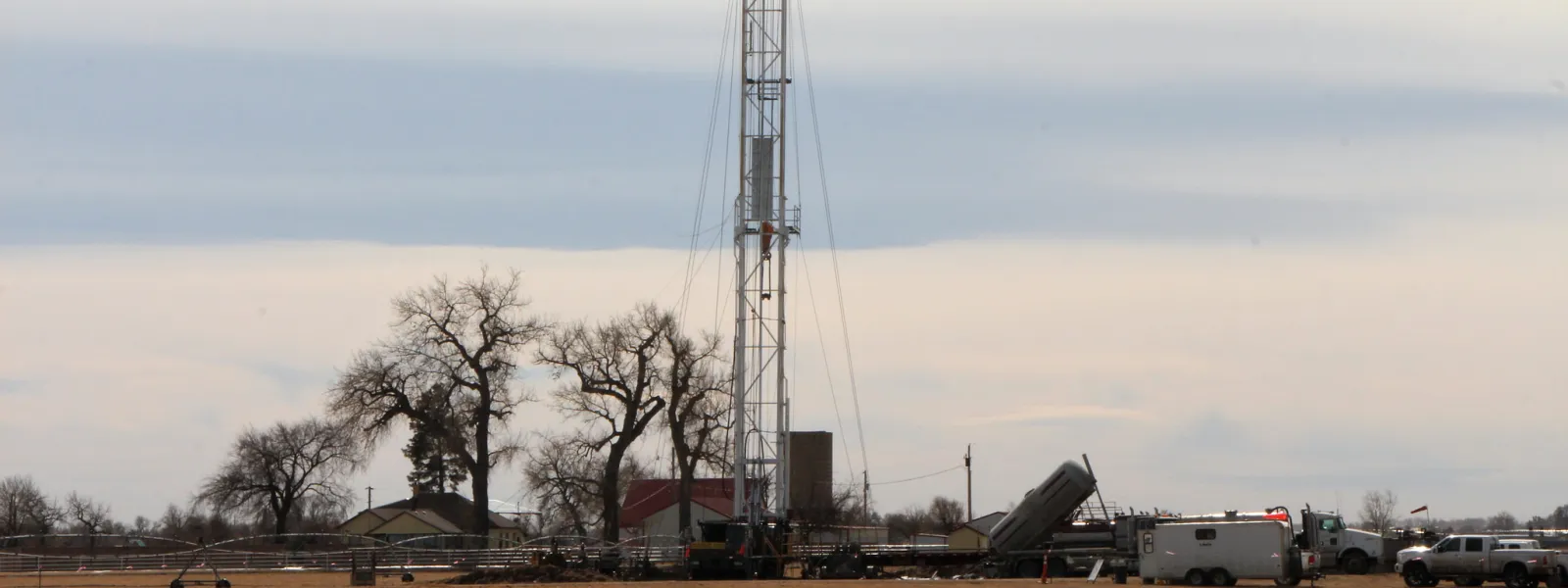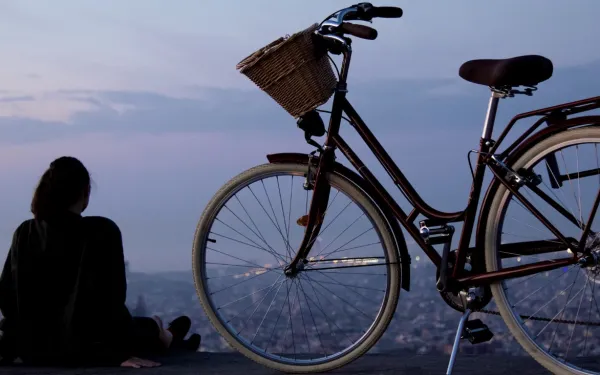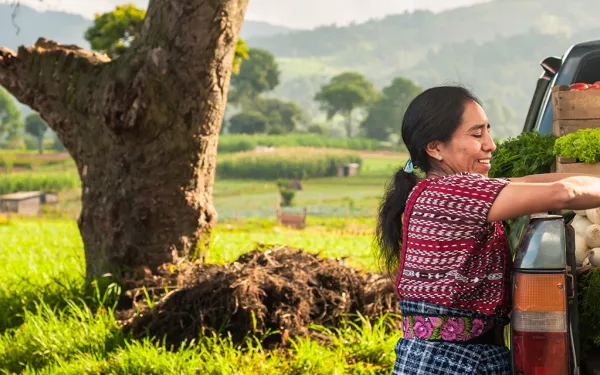
Project
Foto: Andrés ÁngelStopping the spread of fracking in Latin America
“Fracking” is short for hydraulic fracturing, a process used to extract oil and natural gas from historically inaccessible reservoirs.
Fracking is already widespread in the global North, but in Latin America, it is just beginning. Governments are opening their doors to fracking without understanding its impacts and risks, and without consulting affected communities. Many communities are organizing to prevent or stop the impacts of fracking, which affect their fundamental human rights. But in many cases they require legal and technical support.
What exactly is fracking, and what are its impacts?
A straight hole is drilled deep into the earth. Then the drill curves and bores horizontally, making an L-shaped hole. Fracking fluid—a mixture of water, chemicals, and sand—is pumped into the hole at high pressure, fracturing layers of shale rock above and below the hole. Gas or oil trapped in the rock rises to the surface along with the fracking fluid.
The chemical soup—now also contaminated with heavy metals and even radioactive elements from underground—is frequently dumped into unlined ponds. It may seep into aquifers and overflow into streams, poisoning water sources for people, agriculture, and livestock. Gas may also seep from fractured rock or from the well into aquifers; as a result, water flowing from household taps can be lit on fire. Other documented harms include exhausted freshwater supplies (for all that fracking fluid), air pollution from drill and pump rigs, large methane emissions that aggravate global warming, earthquakes, and health harms including cancer and birth defects.
AIDA’s report on fracking (available in Spanish) analyzes the viability of applying the precautionary principle as an institutional tool to prevent, avoid or stop hydraulic fracturing operations in Latin America.
Partners:

Related projects

3 ways to maintain hope in the face of the climate crisis
Those of us who work on environmental issues are bombarded on a daily basis with headlines repeating the message: “Time is up, our days are numbered.” And, to tell the truth, rarely do they seem exaggerated: the IPCC reports, fires in Australia, the disillusionment of COP25, the mocking of the youth movement, assassinations and threats to environmental defenders. During dinner parties and casual get-togethers, people who know I work on environmental issues ask me what they can do for our planet. We start by talking about garbage: produce less of it. This, although seemingly basic, leads to long and heated conversations. Why? Because it questions our means of consumption, how we transport ourselves, feed ourselves, and dress. It makes us analyze our lifestyle and ask ourselves what “quality of life” means for us. Our garbage, after all, is the result of a long chain of emissions, which include the exploitation of land, species, and people. The truth is, everything is connected and it’s impossible to detach ourselves from our impact on the Earth. It’s through this chain of thoughts that many of us fall into episodes of “eco-anxiety.” It’s an increasingly common condition that, if left untreated, can be detrimental to our health. In 2017 the American Psychological Association (APA) described eco-anxiety as “a chronic fear of environmental doom… Watching the slow and seemingly irrevocable impacts of climate change unfold, and worrying about the future for oneself, children and later generations.” The strange thing about this condition is that it can stop us from acting. We might begin to believe there’s nothing we can do and, then, stop paying attention. We might become more lax with our consumption habits and end up aggravating the problem. So what can we do? From what I’ve gathered, our actions can be divided into three areas: the individual, the community, and the citizen-consumer. First things first: Be good to yourself A general rule for helping others is to first help yourself. The climate crisis affects our physical health, food security, human rights, and mental health. According to the APA, emotional responses are normal and negative emotions are necessary for making decisions and living a full life. But extreme emotions and the lack of a plan to resolve the problem can interfere with our ability to think rationally and behave appropriately. Not to mention the fact that those suffering losses due to environmental catastrophes (hurricanes, droughts, and floods) may develop post-traumatic stress. To confront these emotions, the APA suggests that we: Believe in our own resilience and know that we can overcome obstacles. Practice optimism and learn from our experiences. Cultivate self-regulation and emotional self-awareness in order to develop long-term strategies; knowing how to detect them prevents episodes from worsening. Find meaning in your life. Faith or religion work for some; for others it’s meditation or building community. The point is to find something that gives you a sense of peace. Individual actions do help, and people united for a cause can make a difference. Rather than punish ourselves for everything that we can’t do, let’s begin to talk about what we can. How many emissions can we cut back on by riding a bicycle? How many plastic bags can we divert from the sea? How does our consumption help the local economy and our environment? And always, always, take a daily dose of nature to inspire yourself. Second: Your immediate circle Recently, single-use plastic bags were banned in Mexico City. More than one person said that it violated their right to shop as they please; others complained they didn’t know how to shop anymore. I’ve used cloth bags for years. I could have just rejoiced in my own environmental righteousness and bragged on Twitter. Instead I asked myself, “Why not share some recommendations?” Practices that I had already applied to my house were well received by friends and neighbors because they were practical. Building relationships, however brief, is a step toward strengthening our community. Also, it helps to maintain perspective and a sense of humor. Get together with neighborhood groups, volunteer with organizations whose cause you support. Donating time, money, or materials is taking a step beyond your individual actions. Have a friend who wants to eat less meat? Offer them your best vegetarian recipes! Do you know how to program or do graphic design? Do you have a pick up truck? Surely there are groups who would appreciate your help. At AIDA, for instance, we’re often looking for volunteers and interns. The APA recognizes the impacts of the climate crisis on the mental health of certain communities; they are not the same in a city as they are in an area at risk of environmental disaster, or in an indigenous community. Affected communities confront a loss of social cohesion and the loss of important spiritual or recreational places. They also witness an increase in violence, including racial violence, as certain groups become increasingly persecuted. Furthermore, a loss of identity ruptures the unity of these communities, as is happening with the Inuit of Greenland or as we at AIDA have seen in displaced indigenous and riverine populations in the Amazon. Third (I’m sorry): We have to talk about politics and civic engagement This may be a subject you don’t particularly enjoy, but you’re needed here too. The wastewater produced in your home is but a drop compared to untreated industrial waste being dumped into a river. You could ride your bike everyday, but you would still be living in a country that permits industries to emit volatile carcinogenic and greenhouse gases into the atmosphere without accountability. While our goodwill does matter, it just doesn’t have as large an impact as the will (and obligations) of governments and industries to do things right and work for the health of all living things. In Latin America, the election of our local representatives may work differently than it does in the United States. But that doesn’t free us from the responsibility to elect representatives that will work for a cleaner and more resilient future. Indeed, we must demonstrate our interest in that future and demand that they work toward it. Environmental writer Emma Marris explained it well in her New York Times column: “The climate crisis is not going to be solved by personal sacrifice. It will be solved by electing the right people, passing the right laws, drafting the right regulations, signing the right treaties—and respecting those treaties already signed, particularly with indigenous nations. It will be solved by holding the companies and people who have made billions off our shared atmosphere to account.” The balance we’re seeking in AIDA We are proud to be an organization made up of professionals who are deeply passionate about the environment. On a personal level, we share our ideas with each other about how to create a better planet. On a community level, we all support the organization, and there are also those of us that organize civic and neighborhood events. On the level of public policy and participation, AIDA works for environmental justice. We empower communities with the knowledge and tools they need to safeguard and monitor their rights. We take emblematic cases to court and before international bodies to ensure that companies and governments live up to their obligations. We believe that a healthy and equitable future is possible.
Read more
Why are women so important to the pursuit of environmental justice?
Women have long played a fundamental role in the conservation and defense of the planet. Past and present struggles for environmental justice and the defense of animals have been, to a large extent, led by women. Yet the close relationship between women and the environment has not escaped the inequalities that characterize today’s societies. Poverty, exclusion, and inequality are intertwined with environmental degradation and the climate crisis. Women, in general, suffer these plagues in a differential and aggravated manner. In natural disasters, for example, women often experience higher mortality rates than men. Due to the role women play in their communities, they are often less equipped with mechanisms to help them respond to emergencies that result from disasters. They are less likely to know how to swim or climb trees. They are more likely to be responsible for young children or older members of the family. They are more likely to wear clothing that makes it difficult to quickly react to a crisis situation. Furthermore, for historical and cultural reasons, women are less likely to have access to information or be able to participate in situations that affect their right to a healthy environment. They also are less likely to have access to the mechanisms for addressing injustices or repairing damages from catastrophes. Women who do take on roles in the public sphere, participating in public issues, are more likely to take on additional responsibilities that, generally, a man in the same situation would not have to assume. And, at the same time, they confront more intense risks and greater obstacles to the development of their leadership. In this context, the gender focus—defined as the mechanism developed to guarantee holistically valuing the impact any action has on men, women, and those who identify between those categories—is fundamental to making asymmetries visible, overcoming barriers of discrimination, and removing scenarios of exclusion that impede women’s ability to enjoy their right to equality. The gender focus seeks to ensure that those challenges are included in the design, implementation, monitoring, and evaluation of each intervention on a political, economic, and social level. The gender perspective is indispensable to empowering the leadership of women, which is proving increasingly vital in the struggle for environmental justice. In effect, the development of ecofeminist theories offers the world new and transformative alternatives to the ways of thinking that are bringing about the destruction of our environment and negatively affecting the lives of men, women, and other living things. Women are more than simply the most affected by the climate crisis. They also are active participants with a vital role to play in preserving nature and seeking solutions for the health of our planet.
Read more
Learning from Mendoza, Argentina: “Water is not negotiable
Near the end of 2019, the citizens of Mendoza, Argentina united in one of the province’s most important social manifestations. Their objective was clear: to defend their water. People of all ages—members of NGOs, environmental assemblies, anti-mining movements, scientists and academics—took to the streets to demand that the local government reverse the modification of Law 7722, known as "guardian of the water" or "the people’s law." The law is fundamental for the protection of water in Mendoza because it prohibits the use of cyanide, mercury, sulfuric acid and other toxic chemicals in mining activities—all of which seriously contaminate rivers, lakes and other natural water sources. Enacted on June 21, 2007, this law resulted from a long struggle by civil society. A step back in environmental protection The government intended to modify Law 7722 with another regulation, Law 9209, which allowed for "the use of chemical substances [including cyanide], mixtures or dissolutions of them, to ensure the sustainability of the [mining] project.” The justification for eliminating the prohibition on the use of cyanide and other toxic elements was "to guarantee the sustainability of the use of natural resources, with special emphasis on the protection of water resources and to ensure compliance with mining activities.” The use of cyanide in legal mining is becoming less frequent due to the risks involved in its manufacture, transport and use. Cyanide compounds are highly toxic in their gaseous form or when dissolved in water. Considering that the limit of cyanide in drinking water for safe human consumption is four drops per liter, the concentrations used in mining present high risks. In addition, there is abundant evidence of cyanide spills and losses from mining facilities during transport, and multiple cases of mass fatalities of wildlife near mining facilities, particularly migratory birds. The legislative amendment sought to make the procedures for environmental control and monitoring more flexible, by establishing that it was no longer obligatory for the Environmental Impact Statement of a mining project to be ratified by law. This undermined the effectiveness of Law 7722. These changes, promoted by the government of Mendoza, violated environmental protection principles contained in Argentina’s Constitution, among them sustainability and other national regulations that the provinces are obliged to comply with and enrich. For example, article 41 of the Constitution states that "all inhabitants have the right to a healthy, balanced environment, suitable for human development and for productive activities to satisfy present needs without compromising those of future generations; and they have the duty to preserve it." The citizen's response The social response to this modification—which intended to give free rein to the use of substances with a high environmental impact—surpassed all precedents. By successfully reversing an initiative already approved by Mendoza's legislators, it became an example for the entire region. The largest demonstrations in Mendoza's history began on December 22. Under the slogans "water is not negotiable" and "water is worth more than gold," the people of Mendoza organized to express their disapproval of the new law. The following day, 50,000 people gathered in front of the Provincial Government House after a journey of more than 100 kilometers, which began in the town of San Carlos, in the Uco Valley. They demanded: Law 7722 is not to be touched. Despite this widespread popular rejection, the Governor of Mendoza enacted the reform. Then, thousands of self-convoked neighbors gathered at kilometer zero—between San Martín and Garibaldi Streets—in the provincial capital to demand the law’s repeal. On December 26, faced with constant and growing social pressure, the Governor announced that he would not enact the new law. That palliative measure was deemed unconvincing and mobilizations intensified. The Governor then decided to reverse the amendment to Law 7722. On Friday the 27th, he announced the reform’s repeal, which finally happened on Monday the 30th. The case of Mendoza teaches a valuable lesson to all Latin American countries: When citizens are aware of the importance of nature and the scale of the dangers it faces, they will not yield. Socio-environmental conflicts are not only a response to those who have control over natural resources, but also to their effects on a complex social network. For humans and also for other beings, nature is a formative part of our identity, culture and customs. We are part of it and it is part of us. It is a living and interconnected network. That is why we must be its main defenders. The prompt and necessary updating of the concept of "sustainable development" is one of the challenges of Environmental Law in the 21st century. We mustn’t promote development that attacks nature and ignores human rights. Learn more about the use of cyanide in mining (in Spanish).
Read more